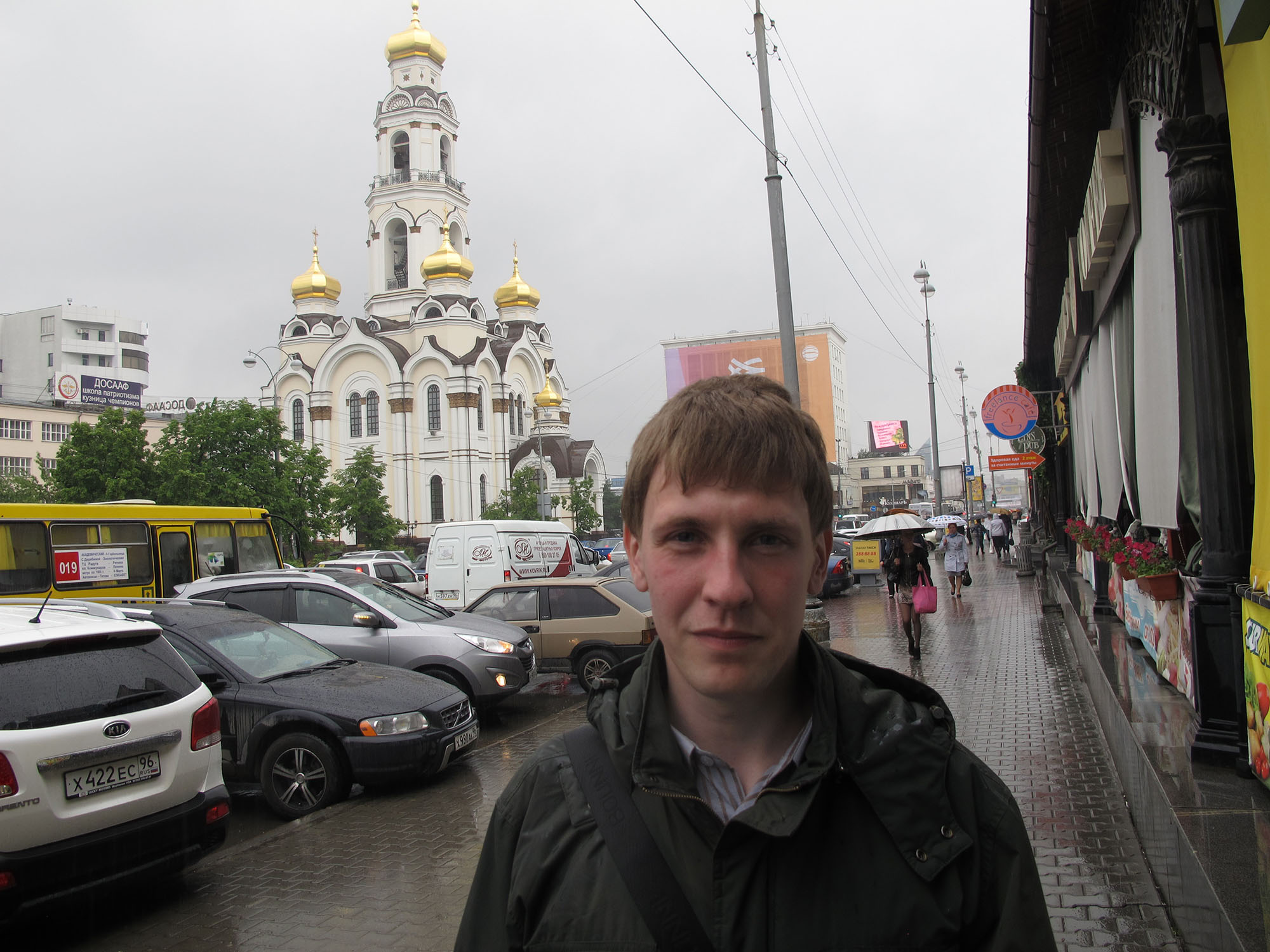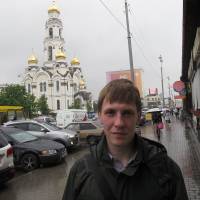After three men in this heavily polluted city west of Yekaterinburg beat Stepan Chernogubov unconscious, fracturing his skull and knocking out three teeth, criminal investigators took him, still bleeding, to a police station where they questioned him for four hours and then threatened to bring charges against him.
Chernogubov had been set upon as he was trying to document the pollution streaming from a local chromium plant, pollution that occasionally turns a marsh feeding the Chusovaya River dark red, next to a waste pond that is bright green. At least two of those in the fracas turned out to be plainclothes police officers, he said in recounting the May incident.
The 26-year-old student knew the risks. Environmental activism in Russia attracts serious trouble. Suren Gazaryan, a forest advocate in southern Russia, criticized a governor, was thrown in jail and has now fled the country. Mikhail Beketov, an editor who campaigned against a highway project through a forest near Moscow, suffered brain damage in a 2008 beating, and recently died.
In the southern region of Voronezh, three activists organizing against the opening of a lead and nickel mine were hospitalized in May after private security guards set upon them.
In all of these cases, the root of the conflict is fairly straightforward — perceived environmental degradation for the benefit of powerful and wealthy interests.
Russia requires no environmental impact statements on new development, and activists cannot turn to the courts for relief because the legal system there reliably serves those in power.
So the only recourse for environmentalists is to stage protests and other forms of personal action. And that invites danger.
Chernogubov said he had gotten a tip from a government worker that a discharge would be taking place at the chromium plant. He had recently joined a volunteer council, organized by a Yekaterinburg lawyer named Vassily Rybakov, to monitor the government of this small Ural Mountain industrial city. That's not work for the fainthearted, as Chernogubov's wounds attest.
"It's like a little kingdom out there," Rybakov said. "When you go there, it's like returning to the 1990s — gangsters, crooks, rackets."
Chernogubov had already been warned off once, after he posted a blog entry on pollution at the plant, called Russian Chrome 1915. An aide to Mayor Yuri Pereversev called him, he said, and asked him to take down the post. Pereversev did not respond to requests for comment.
But the activist persisted, until, on May 9, he found himself sitting in a police station, dazed and bleeding profusely, and under interrogation.
Chernogubov is typical of a large number of Russian environmentalists. He is a strong believer in the values of traditional Russian culture — so strong a believer that in contemporary multiethnic Russia it can come across as intolerance toward others.
In the Voronezh protests, for instance, environmentalists were joined by Cossacks, among the most nationalistic of Russians.
So when investigators ransacked Chernogubov's apartment, and found a Cossack uniform and an academic history of the Third Reich and cartoons about Muslim migrants, they told him it looked like he could be charged with extremism and inciting national hatred.
Chernogubov said he is not a neo-Nazi, but he is proud of his roots. His family settled in Pervouralsk in the early 18th century to work at one of Russia's first iron smelters. They were from a persecuted sect called Old Believers, and were escaping the official hostility they faced in west Russia.
Eventually, the authorities decided not to proceed on any charges against Chernogubov.
Both Chernogubov and the man who was named as his primary attacker, Anatoly Grishin, have filed criminal complaints against each other. The prosecutor's office said there is insufficient reason to move forward but has left the file open.
The other two men in the fight, identified by the prosecutor's office as police officers, have been exonerated. The Sverdlovsk region police department have not commented on the case.
Russian Chrome 1915 emerged from bankruptcy several years ago and is now controlled by a holding company registered in Cyprus. Production is way down, its workforce has been slashed — but the site includes 7 million tons of unprocessed chromium waste, Rybakov said, which the company claims is the government's responsibility. On its website, the company says it obeys Russian environmental statutes.
The day after Chernogubov's beating, a Greenpeace activist named Rashid Alimov arrived from St. Petersburg to do soil testing around the plant. He wrote on the organization's website that he found levels of chromium pollution nearly 100 times the accepted maximum. He pointed out that a large pipe factory, upstream on the Chusovaya, may be equally polluting.
Chernogubov was hospitalized twice after the attack. But by June he was well enough to take exams, and he recently saw a dentist to get new teeth.




















With your current subscription plan you can comment on stories. However, before writing your first comment, please create a display name in the Profile section of your subscriber account page.